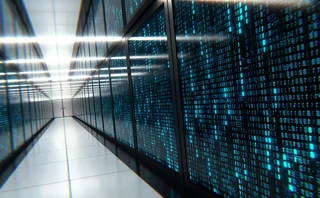Technologists as Traders: Sitting in the Hot Seat
The question is this: Should a technologist's training include some time spent as a trader?

This week I've been in Chicago for a few meetings, but the main reason I'm here was to chair the inaugural Chicago Trading & Technology Summit, which was held on Thursday. The event is designed to bring together technologists with front-office traders, risk managers and regulators. There will be more of these events coming up next year, including in San Francisco, Boston and Dubai.
You get to hear some interesting perspectives at an event like this. When you just talk with technologists, you here about what traders and portfolio managers want, but you're hearing it second hand, many times.
It's with this in mind that my ears perked up when, during a panel on risk management, Peter van Kleef, managing director at Lakeview Capital Market Services, said firms should require their technologists to work as traders for a brief period. He fully understands the results are likely to be negative...but that's also part of the lesson.
"The guys that are taking care of the systems, they don't understand the business because they're not sitting in the front office. What we've always done is if someone works in the IT department writing strategies and writing risk modules, that person has to trade for a while. We know he will probably lose money. He probably won't be very good at it. It might even frighten him to be in front of a trading screen. He sees real-time P&L ─ he loses $1,000, $5,000, $10,000. At that point, he intimately understands risk and he knows exactly what the guy that sits in front of that screen is feeling when that machine goes crazy or something else happens."
And once he understands how a trader feels, "that improves by a zillion times the quality you get from IT."
Van Kleef also said that you can joke around with a techie and tell him that those funds are going to come out of his salary. Through that emotional experience, the technologist now understands what a negative P&L feels like.
Van Kleef said that large organizations don't have the time, patience or the inclination to help those in IT understand what trading actually feels like. "In my view, big organizations always neglect this," he said.
This got me wondering. In my years here at Waters, I've interviewed hundreds-perhaps over a thousand, if you include conferences-technologists. When I use the word technologist, I use it in an all-encompassing sense. Of course that means CTOs, CIOs, developers and programmers at banks and asset managers. But that also means people inside vendor shops.
How many of these people have actually spent time as an institutional trader and put orders in and watched them turn red? It's an interesting question.
Traders. Portfolio managers. Operations managers. Risk managers. Compliance specialists. Board members. They all realize the importance of technology. Shouldn't the technologists be as well versed in the highs and lows of trading?
We'll have more from the Chicago Trading & Technology Summit posted over the coming days. In the meantime, my colleague Dan DeFrancesco wrote a story on the usefulness of the R scripting language. Enjoy.
Only users who have a paid subscription or are part of a corporate subscription are able to print or copy content.
To access these options, along with all other subscription benefits, please contact info@waterstechnology.com or view our subscription options here: http://subscriptions.waterstechnology.com/subscribe
You are currently unable to print this content. Please contact info@waterstechnology.com to find out more.
You are currently unable to copy this content. Please contact info@waterstechnology.com to find out more.
Copyright Infopro Digital Limited. All rights reserved.
You may share this content using our article tools. Printing this content is for the sole use of the Authorised User (named subscriber), as outlined in our terms and conditions - https://www.infopro-insight.com/terms-conditions/insight-subscriptions/
If you would like to purchase additional rights please email info@waterstechnology.com
Copyright Infopro Digital Limited. All rights reserved.
You may share this content using our article tools. Copying this content is for the sole use of the Authorised User (named subscriber), as outlined in our terms and conditions - https://www.infopro-insight.com/terms-conditions/insight-subscriptions/
If you would like to purchase additional rights please email info@waterstechnology.com
More on Emerging Technologies
Waters Wavelength Podcast: Broadridge’s Joseph Lo on GPTs
Joseph Lo, head of enterprise platforms at Broadridge, joins the podcast to discuss AI tools.
Man Group CTO eyes ‘significant impact’ for genAI across the fund
Man Group’s Gary Collier discussed the potential merits of and use cases for generative AI across the business at an event in London hosted by Bloomberg.
BNY Mellon deploys Nvidia DGX SuperPOD, identifies hundreds of AI use cases
BNY Mellon says it is the first bank to deploy Nvidia’s AI datacenter infrastructure, as it joins an increasing number of Wall Street firms that are embracing AI technologies.
This Week: Linedata acquires DreamQuark, Tradeweb, Rimes, Genesis, and more
A summary of some of the latest financial technology news.
Systematic tools gain favor in fixed income
Automation is enabling systematic strategies in fixed income that were previously reserved for equities trading. The tech gap between the two may be closing, but differences remain.
Euronext microwave link aims to cut HFT advantage in Europe
Exchange plans to level playing field between prop firms and banks in cash equities with cutting edge tech.
Why recent failures are a catalyst for DLT’s success
Deutsche Bank’s Mathew Kathayanat and Jie Yi Lee argue that DLT's high-profile failures don't mean the technology is dead. Now that the hype has died down, the path is cleared for more measured decisions about DLT’s applications.
‘Very careful thought’: T+1 will introduce costs, complexities for ETF traders
When the US moves to T+1 at the end of May 2024, firms trading ETFs will need to automate their workflows as much as possible to avoid "settlement misalignment" and additional costs.
Most read
- Chris Edmonds takes the reins at ICE Fixed Income and Data Services
- Deutsche Börse democratizes data with Marketplace offering
- Sell-Side Technology Awards 2024: All the winners








